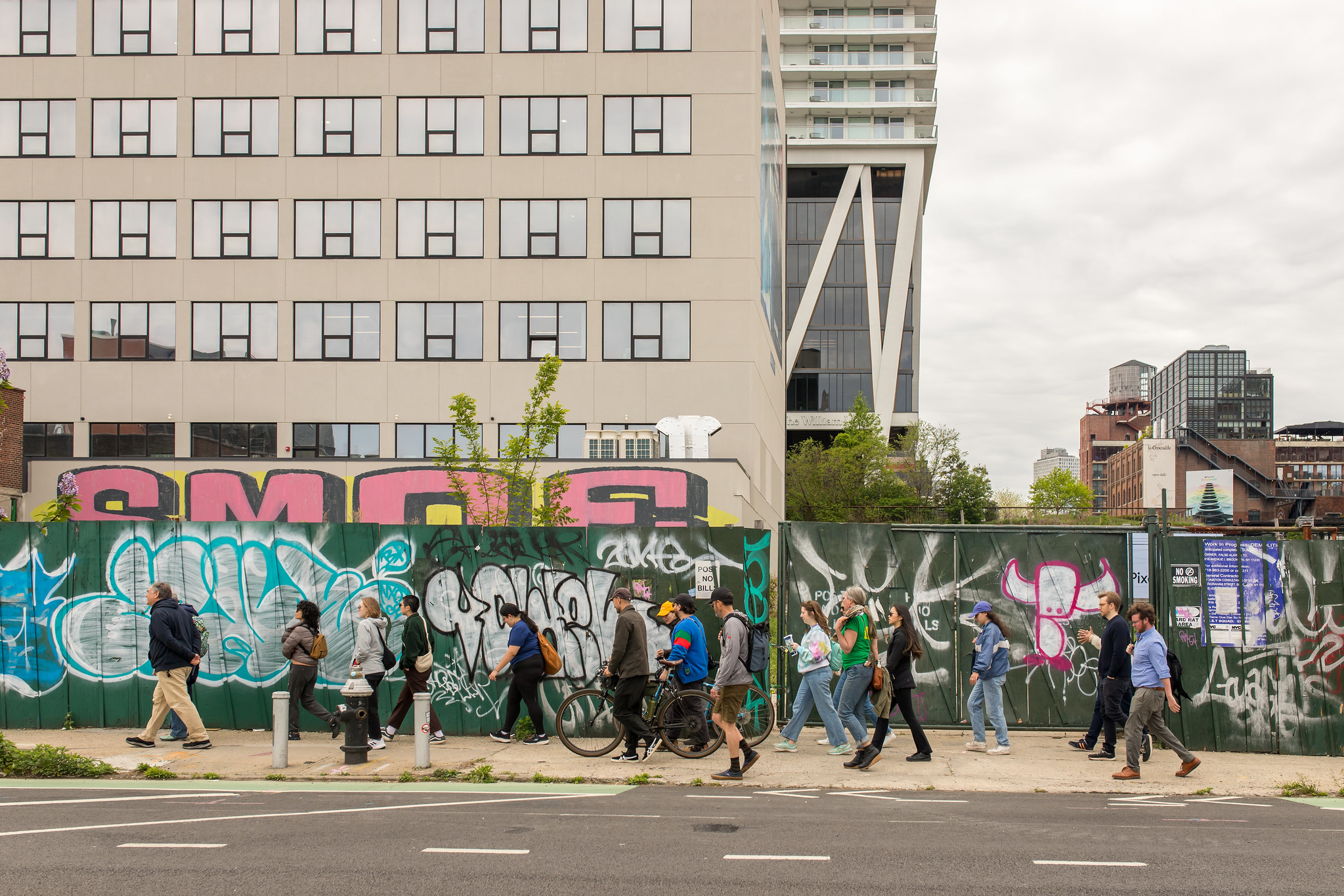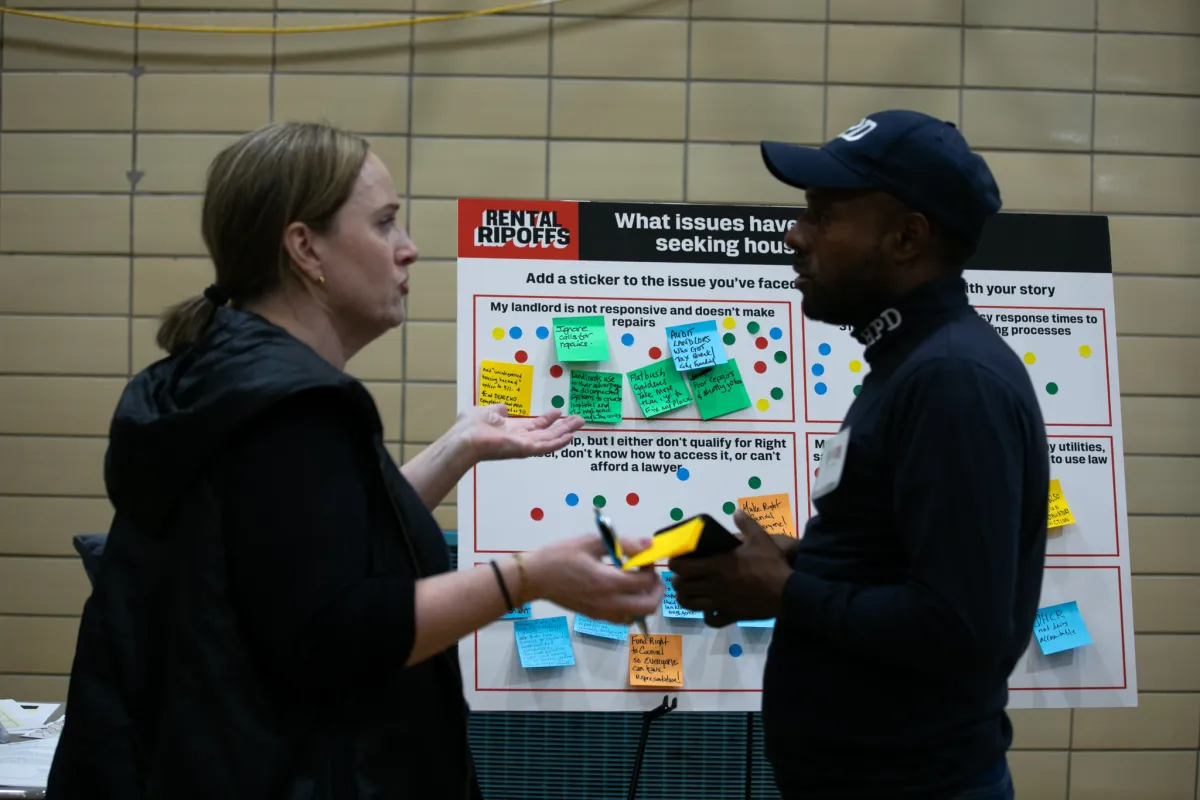School Admissions Changes Causing 'Chaos'
This year the Department of Education changed its admissions process for pre-K’ers, according to the Brooklyn Eagle, and the shift means a lot of parents are grappling with the fact that their kids have been placed in schools far from home. About 3,000 parents, “including those in large swaths of Brownstone Brooklyn,” recently found out…


This year the Department of Education changed its admissions process for pre-K’ers, according to the Brooklyn Eagle, and the shift means a lot of parents are grappling with the fact that their kids have been placed in schools far from home. About 3,000 parents, “including those in large swaths of Brownstone Brooklyn,” recently found out their kids didn’t get into any of the schools they’d put down on application forms. Yesterday Public Advocate Betsy Gotbaum and Councilman Bill de Blasio held a press conference to decry the new pre-K placement system, and Gotbaum said the changes “have had some chaotic consequences for parents.” The new admissions process is apparently affecting older kids, too. Only the Blog Knows Brooklyn has been writing about how her child didn’t get in to any middle schools, apparently because of a DOE computer glitch. The blogger is describing the experience as traumatic: “And then [my daughter] heard me talking on the phone to the New York Times. She doesn’t know who I was talking to but she can tell that I am agitated, annoyed, on edge, shakey, not happy and so on.”
Pre-K Snafu Leads Brooklyn Parents To Protest at Tweed [Brooklyn Eagle]
Middle School SNAFU: My Daughter Isn’t On The List [OTBKB]
Photo by Kit & I.





Why not expand the overcrowded schools? Build new buildings, hire new staff and reserve 25% of seats in all classes for out of zone kids or do an at risk match and couple a good performing school with a poor performing school for the lottery to keep the playing field more fair. This could capitalize on the reverse white flight situation instead of bringing us all back to square one.
11:32 – And to add insult to injury with two kids and a $250,000 income:
St. Anne’s – $60,000 tuition + $12,500 city income taxes = $72,500
Public school – $0 tuition + $15,000 property taxes = $15,000, plus free parking.
I’m going to look into that too. This is all very troubling. I feel a little like a lemming.
I am thinking that you have raised an excellent point, and one so easy to forget. When “everyone else” around you is sending their kids to two years of pre-school, followed by pre-k followed by K, and only THEN is it off to elementary school as we knew it. My God. Four years of schooling before first grade. And we are made to believe it is the best thing for our kids…is it?
Noklissa, I think the data are inconclusive, and “pre-K” covers a wide demographic, so it’s hard to control for that, I would imagine. This is why it’s so tricky to make broad statements about education, because there are so many variables. What is Pre-K like, in Tennessee, for instance? How much funding does the state kick in? god knows the feds don’t, much, these days.
I’m interested in the info about Head Start. Where are they getting these data, and is it just for Tennessee? Common sense would tell you that it is far better for a child to have all the nutritional benefits and stability that Head Start gives poorer kids.
bxgrl — I think one thing they have established is that childhood development is closely linked to interactions with adults. If you’re plunked in front of a TV for hours, whether by a parent or in day care of some sort, you’re not going to do as well. So you can’t make a hard and fast rule. It may be the parent who’s doing the plunking, see what I mean?
Nokilissa- is there any evidence to say whether or not pre-k is actually harmful in ways? I mean to ask that because it’s a separation of children and parents at an earlier age, and more structured. It used to be that educators felt the years at home, and/or the full time interaction of parents and very young children was integral to their healthy development. And I’ve always felt that the very early years should be less structured and allow children free reign for their imaginations. And again, I say that as and aunt and godmother, not a parent and I’d like to know why parents do put their kids in pre-k (as it’s structured today). I mean beyond the issue of both parents needing to work.
Hmmmm. Hate to do it, but my earlier comment may need (self) correction. Did a little research and I was troubled by the following which came out of The Tennessee Center for Policy Research:
“Based on claims made by elected officials, we began researching government endeavors in early education with the assumption that pre-K programs would produce future academic success and value to the society.
The facts, however, proved quite the opposite. The programs produce little or no demonstrable advantage despite their hefty pricetags and lofty aspirations.
The Georgia universal pre-K program is the best model by which to compare proposals for a statewide universal preschool in Tennessee. After ten years, the Georgia preschool program has served over 300,000 children at a cost of $1.15 billion and children’s test scores are unchanged. Yet supporters of a pre-K effort fail to mention this result.
Head Start, the nation’s largest preschool program for disadvantaged children, has also not measurably improved educational outcomes. According to a study performed by the Department of Health and Human Services, “Once the children enter school there is little difference between the scores of Head Start and control children…By the end of the second year there are no educationally meaningful differences on any of the measures.†However, few legislators reference that fact…
…While the Administration deserves praise for their interest in addressing the early education needs of Tennessee’s children, Tennesseans deserve government officials who make points using well-documented, fact-based evidence, rather than apples to oranges comparisons that are both “irresponsible†and “wrong.”
I see the connection now…11:42=1:47…getting
even more bitter as the thread goes on.
1:47 what the hell is your problem?? You are your own little ghetto.
1:44 hit a home run. Pefect explanation of why Park Slope does not need pre-K, no matter where the funds come from.